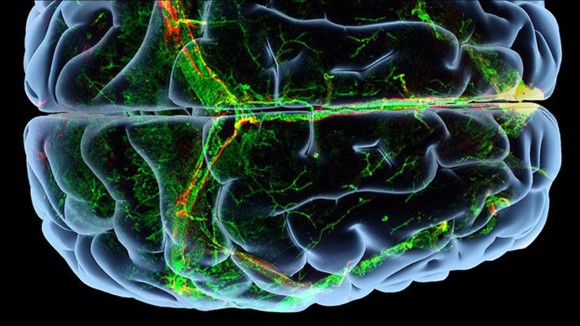Tune in here for the below episodes: iTunes, Google Podcasts, RSS Feed, SoundCloud.
November 19: Intra-individual changes in methylome profiles: an epigenetic ‘scar’ of early-life adversity?
It’s widely understood that early life adversity has an impact on mental illness and cognitive problems later in life. There are theories as to the mechanisms of how this works, but it’s difficult to test in humans. Tallie Baram is a professor of neurophysiology and biophysics at the UC Irvine department of pediatrics. And she co-authored a recent study in the journal Neuropsychopharmacology with Ali Mortazavi, professor of developmental and cell biology at UC Irvine. Dr. Baram says that imaging studies show changes in brain structure and circuits, and cognitive and emotional tests also demonstrate a change in function. But it’s difficult to study the mechanism, to try to understand how this is happening, because scientists can’t take samples of brain tissue to determine how and when genes are expressed. Related Article.
September 19: Effects of MDMA on attention to positive social cues and pleasantness of affective touch.
The recreational drug MDMA, also known as Ecstasy or Molly, is particularly popular in social settings and raves, in large part because of how socially connected it makes the users feel. It’s being studied for use in psychotherapy —there’s a phase III clinical trial for the use of MDMA to treat PTSD. What’s clear is that the drug affects how users experience social interactions. But there are questions: Does the drug make positive social interactions feel better, or reduce the negative feelings associated with negative social interactions? Have a listen to learn more! Related Article.
July 16: Superolateral medial forebrain bundle deep brain stimulation in major depression: a gateway trial.
Depression is an incredibly important disorder—according to Thomas Schlaepfer, head of the department of interventional biological psychiatry at the University of Freiburg, at least 20 percent of people have a depressive episode at least once in their lives. And while most patients’ symptoms improve with a combination of psychotherapy and medicine, up to 20 percent of depressed patients do not improve from existing treatments. Dr. Schlaepfer and his colleagues have been conducting research on deep brain stimulation, in which implanted electrodes automatically deliver electrical impulses to a particular region of the brain. Have a listen to learn more! Related Article.
May 17: Cues play a critical role in estrous cycle-dependent enhancement of cocaine reinforcement.
Research has demonstrated that, overall, women are more vulnerable to drug addiction than men are. They become addicted more quickly after first using, they have a harder time staying off drugs, and they relapse at higher rates. But most studies have focused on men, and models that have been developed nearly entirely focus on male subjects. Now, two things are changing the situation: scientists are realizing that women's experience and women's brains are different when it comes to addiction, and the NIH has mandated that tests involve female subjects as well. Erin Calipari is assistant professor of pharmacology at the Vanderbilt University School of Medicine, and she's one of the authors of a new paper in the journal Neuropsychopharmacology. In it, she and her colleagues create a new model for examining the differences between female and male rodents when it comes to drug addiction. Related Article.
March 8: Food Addiction: A Valid Concept?
Over the past decade, the use of the term 'food addiction' to describe an unhealthy approach to eating has grown. It refers to the idea that, for some people, their inability to control their food intake has similarities to that of a drug of abuse. Paul Kenny is the chair of the Department of Neuroscience at the Icahn School of Medicine in New York. He's one of two authors of a recent circumspective in the journal Neuropsychopharmacology. In the piece, Dr. Kenny and his colleague Dr. Paul Fletcher of the University of Cambridge take opposing viewpoints, Dr. Fletcher arguing against the use of the term food addiction, and Dr. Kenny in favor. Related Article.
January 15: Sex Matters.
As our environment becomes ever increasingly complex, understanding how sex differences impact disease risk and resilience will only become more critical. The 2019 , "Sex Matters," edited by Dr. Tracy L. Bale, highlights the causal and mechanistic value in cases where significant sex differences are found, as well as when they're not; where sex differences may arise at one period of life and disappear in another. Additionally, this podcast, as well as the special issue, reinforces the message that males are not the control, and females are not more variable. The value is in appreciating the difference. Sex matters. Related Articles.

